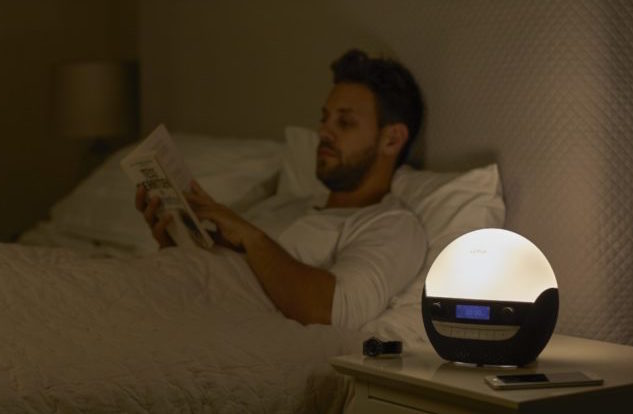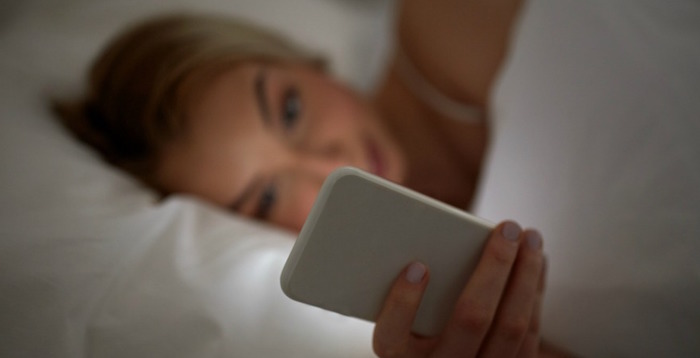If you have a young teenager, then your mornings probably follow the same pattern when it comes to waking up times. You’ve probably tried a whole range of things, and nothing seems to be working, which turns into a constant daily struggle.
Teenagers are still in a significant growth stage of their lives in all areas including hormonally, physically and emotionally which means that sleep is critical to their functioning.
The National Sleep Foundation have found that teens need 8-10 hours of sleep per night which is almost as much as younger toddlers.
What makes this even more difficult is that teens see their sleeping pattern shift later into the night which means that they don’t naturally feel tired until 10-11pm.
Ideally, they’d be asleep by, but because of this shifted sleeping pattern, this is difficult to implement especially with the added life pressures that they experience including school work, socialising and other after-school activities.
Sleep deprivation can cause a long list of adverse effects especially if this continues long term including:
• Lower Alertness
• Lack of clarity and thinking
• Harder to understand and digest information.
• Lower Grades
• Obesity
To help you we created this guide to show you the most effective ways of getting your teenager up in the morning without causing too much of disruption to the amount of sleep they get.
Use a Light up alarm clock
A less intrusive way of using light to rise is a wake-up alarm clock which gently uses light to wake them up out of their deep sleep naturally.
This is one of the gentlest ways of waking up and is a great alternative to a buzzing alarm clock which jolts you out of your sleep. The light will help to halt the production of sleep hormone

Melatonin
A more forceful way to wake up your teenager is to adjust the lighting in their room which can be done by either turning on the lights or by opening the curtains to let natural light in.
However, this method will undoubtedly cause quite a bit of moaning and is difficult to do every single day, so a wake-up alarm clock is a more effective method.
Stick to a Routine
School holidays and weekends are often where sleep patterns are knocked out of sync and teenagers find themselves going to sleep later than usual. This means that when it reaches term time where they have to wake up earlier, they find it difficult to rise earlier.
To combat this, you need to ensure that they stick to a similar routine that they would in term time, so you shouldn’t be allowing your teen to sleep until midday. There’s nothing wrong with a lie in, but you need to set a reasonable bedtime and wake up time.
Restrict Electronic Usage
One of the main reason’s teenagers struggle to wake up in the morning are they sitting on electronics for most of the night well into the early morning. An easy remedy for this is to restrict their usage after a specified time.
You should either stop them from taking their mobile phone or laptop to bed or communicate with them to give them a level of trust in the process, with the latter option being the best.

It’s common for teenagers to sleep with the TV on, but this can interfere with getting a good nights sleep due to the blue light that’s emitted as well as the sound that can wake you up in the middle of a deep sleep cycle.
Set a bedtime
So we’ve established that one of the biggest reasons that teenagers find it difficult to wake up is because they’re staying up too late. To counteract this, it’s an effective idea to create a bedtime.
Of course if they are older teenagers, then this is harder to implement, but ideally, you’ll start this when they are an earlier teen so they will maintain this habit throughout the following years of their life.
You still need to give them the freedom to make their own decisions, so you shouldn’t set an exact time, but without having any rules, they have nothing stopping them from staying up all night.
Stop naps
If your teenager is finding it hard to wake up, then this may be because they take naps when they get home from school as a way of catching up on lost sleep. It then means that they find it hard to get to sleep at night and this causes a cycle of inadequate sleep.
To combat this, if your teen is coming home from school tired you need to encourage them to stay awake by keeping them busy whether this is with exercise, activities or homework.
You need to do this a few times to help reset their body clock so they can get to sleep at an earlier time, so they no longer feel the need to nap throughout the day.
Offer Incentives
You may need to offer some form of incentive and reward for your teenage to wake up on time then you may need to associate this with any privileges that they may have.
For example, if they want to go out with their friends on Friday evening, then they need to prove that they can get themselves up and ready for school in the week. This way they know that they won’t want to ruin their weekend by making mistakes throughout the week
Give yourself extra time
If you need your teenager to wake up at, but it can take them a while to rise, then you may need to start this process earlier. It gives you an extra buffer of time to ensure that they get ready on time, whereas usually, it will be a huge rush.
The extra time doesn’t have to be huge and as little as 10 minutes which can be the difference between being late and on time especially if it takes them a while to finally get up from their slumber.
Noise
We’re used to tiptoeing around the house when people are sleeping, but to wake your teenager up you may need to be noisier. It will wake them up out of their deep sleep so it won’t be as difficult when their alarm goes off, or you knock on their door.
This is easy to do if they have younger siblings who are already going to be making a lot of noise in the home. What you don’t want to do is burst into their room with a pot and metal spoon as this can cause more hostility and will end up having the opposite effect as they’ll often go back to sleep once you leave.
Exercise
Due to the rise of technology, children are taking part in less and less physical activity and spending most of their time watching TV and using mobile devices.
To help your teenager wake up on time, taking part in more exercise can be an effective remedy because the exercise will not only make them more healthy, but a result of expending energy is that they will feel more tired.
As a result of being more tired, they will fall asleep earlier than usual meaning it won’t be such a struggle to wake them up in the morning. There is a range of activities that they could do, but the main one is sports which could be at their school or for a local sports team.
Seek Professional Diagnosis
If your teenager continues to find it challenging to wake up in the morning, then there could be a more complex issue. To start you need to take them to a medical professional who can diagnose any medical problems.
For example, They could have insomnia which means that they may not be getting to sleep until the early hours restricting the amount of deep REM sleep. REM sleep is incredibly important to teenagers because this is the phase of sleep where the necessary repairing and rest takes place.
Not all issues are physical, so it could also be triggered by mental health problems such as anxiety or depression which can also interfere with sleep quality.
So although we’ve given you the most useful tips, there’s no guarantee that any of these will work. They're a teenager, and eventually, they need to start taking responsibility of their life because they are soon to be adults, so they’re going to have to get used to being on time and punctual.
For this reason, we left out that you have to shout and holler to get them up because most likely you’ve either already tried this or it’s unlikely to work.
However, if this continues to be a long term problem, then there could be a deeper issue to deal with. Communication is critical here so sit them down and have an honest talk about it because it could be caused by something you’re unaware of.

